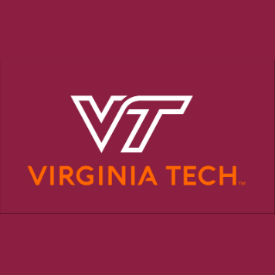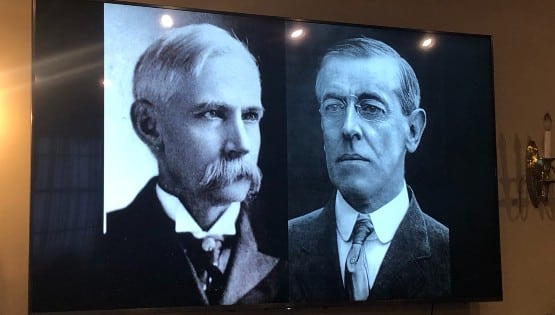
“Virginia Tech is deeply committed to ensuring an equitable environment for all students,” said Virginia Tech President Tim Sands. “This report will help us improve our support for members of the university’s LGBTQ+ community and affirm through our actions that they are welcome, valued, and an important part of Virginia Tech’s diverse campus.”
Conducted by Kristen Renn, a professor and associate dean of undergraduate studies for student success research at Michigan State, the report found progress in several LGBTQ+-related arenas, but also “substantial room to improve to provide a more equitable learning environment.”
The comprehensive 23-page report was sent to Patty Perillo, vice president for student affairs, in January, and a working group has met monthly to advance the recommendations. That group has developed an action plan to demonstrate progress.
“Making sure there’s an equitable experience for all students means taking a critically honest look at areas where we’re doing well and where we’re falling short and then working to take action,” Perillo said. “Bringing in a scholar and national expert to identify what we need to do better for our LGBTQ+ community is a huge step and now we’re on to the more important steps — turning that awareness into action.”
“It was important for us to inform the university community of this important work during Pride Week and just days before the university commemoration of the 40th anniversary of Denim Day, the campus’ first event held in support of gay rights,” Perillo said.
The group includes representatives from Human Resources, Equity and Access, LGBT Faculty and Staff Caucus, LGBTQ+ Resource Center, Undergraduate Academic Affairs, Graduate School, Student Affairs, Office for Inclusion and Diversity, as well as undergraduate and graduate students and student organizations.
“This isn’t just the usual voices at the table,” said Jordan Harrison, staff psychologist at Cook Counseling Center and co-chair of the LGBT Faculty and Staff Caucus. “It’s a more intentional pulling together of campus leaders and administrators from respective disciplines.”
Harrison, who is in the working group, said that was important because the report described Virginia Tech as having a small group of LGBTQ+ “allies and champions” and a far larger group of “allies in waiting” who could be invited in and activated to help change the campus climate.
“I think most folks on campus are open and accepting and confirming, but they aren’t sure how to demonstrate that,” Harrison said. “The report provides the opportunity to make that tangible. It can be a stepping stone for helping out allies know how they can support and lift up the community.”
Harrison said the report also highlighted the disproportionate stress students in the LGTBQ+ community often experience navigating all aspects of campus life.
“It’s the hypervigilance and need to be mindful about where I can be myself,” he said. “It’s not surprising, we know that is the experience of many students, but to see it written down in report form gave an added weight to that.”
This is especially true for students who identify as transgender, non-binary, gender non-conforming, for LGBTQ+ students of color, and another marginalized segment of the population, according to the report.
Among other ideas, Renn suggests moving forward with plans to reactivate the currently dormant Safe Zone program, which could offer programing aimed to raise the understanding of LGBTQ+ issues, including the stresses of intersecting identities. Certificates or placards could then be available for allies involved, allowing them to be easily identified by students.
Luis H. Garay, director of Virginia Tech’s LGBTQ+ Resource Center, said the report had energized efforts, such as reactivating the Safe Zone program and the further development of the resource center, which developed its first mission statement, vision statement, and guiding principles, last summer.
“I think this report gave us a little push,” said Garay, who is also a member of the working group. “Now we have something we can look at and be beholden to.”
They said putting together an advisory board for the center was the immediate next step and they believe the demographics of the working group will assist in the ongoing development of the center’s community-based model engaging undergraduate students, graduate students, faculty, staff, and alumni.
“The working group is wonderful because it brings a lot of different constituents to the table,” Garay said. Perhaps the most unique constituents in the group are those living in the current climate while at the same time working to positively change it.
“Me and others from HokiePRIDE were not really surprised by the results of this report and were really eager to push more towards doing something about it,” said Rowan Wooldridge, a junior studying biochemistry and president of HokiePRIDE.
“This is the first step towards our voices being heard, and there are some very passionate and knowledgeable people working to make this university better for people like us,” Wooldridge said.
- Yolanda Avent, Cultural and Community Centers
- Karen DePauw, Graduate School
- Luis Garay, LGBTQ+ Resource Center
- Tyneshia Griffin, Undergraduate Student
- Jordan Harrison, Cook Counseling Center, LGBT Caucus Co-Chair
- John Livingston, Undergraduate Student
- Adam Masters, Graduate Student
- Quynh-Van Nguyen, Undergraduate Student
- Minh-An Pence, University Human Resources
- Patty Perillo, Student Affairs
- Kathryn Polidoro, Equity and Access
- Marcy Schnitzer, Office for Inclusion and Diversity
- Angela Simmons, Student Affairs
- Jill Sible, Undergraduate Academic Affairs
- Nathaniel Soss, Undergraduate Student
- Rachel Weaver, School of Visual Arts, LGBT Caucus Co-Chair
- Rowan Wooldridge, Undergraduate Student










